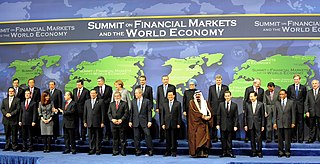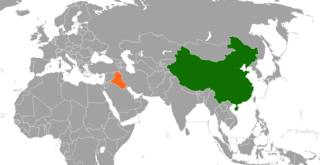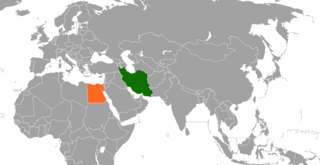Related Research Articles

The Middle East is a geopolitical region encompassing the Arabian Peninsula, the Levant, Turkey, Egypt, Iran, and Iraq. The term came into widespread usage as a replacement of the term Near East beginning in the early 20th century. The term "Middle East" has led to some confusion over its changing definitions, and being seen as too Eurocentric. The region includes the vast majority of the territories included in the closely associated definition of West Asia, but without the South Caucasus, and additionally includes all of Egypt and all of Turkey.

In art history, literature and cultural studies, Orientalism is the imitation or depiction of aspects of the Eastern world by writers, designers, and artists from the Western world. Orientalist painting, particularly of the Middle East, was one of the many specialties of 19th-century academic art, and Western literature was influenced by a similar interest in Oriental themes.
A vassal state is any state that has a mutual obligation to a superior state or empire, in a status similar to that of a vassal in the feudal system in medieval Europe. Vassal states were common among the empires of the Near East, dating back to the era of the Egyptian, Hittite, and Mitanni conflict, as well as Ancient China.

A middle power is a state that is not a superpower or a great power, but still exerts influence and plays a significant role in international relations. These countries often possess certain capabilities, such as strong economies, advanced technologies, and diplomatic influence, that allow them to have a voice in global affairs. Middle powers are typically seen as bridge-builders between larger powers, using their diplomatic skills to mediate conflicts and promote cooperation on international issues.

Muhammad Ma Jian was a Hui-Chinese Islamic scholar and translator, known for translating the Qur'an into Chinese and stressing compatibility between Marxism and Islam.
The Arab Organization for Industrialization (AOI) is an Egypt-based Arab military organization established in 1975 by Egypt, Saudi Arabia, United Arab Emirates and Qatar to supervise the collective development of the Arab defense industry. Following a gradual deterioration in relations between the AOI member-states, Egypt became sole owner of AOI in 1993. As well as meeting the requirements of the Egyptian military, AOI directs spare capacity to civilian programmes, including civilian transport and sanitation equipment; additionally, AOI has stated its intention of entering the wind power sector.

Indo-Roman trade relations was trade between the Indian subcontinent and the Roman Empire in Europe and the Mediterranean Sea. Trade through the overland caravan routes via Asia Minor and the Middle East, though at a relative trickle compared to later times, preceded the southern trade route via the Red Sea which started around the beginning of the Common Era (CE) following the reign of Augustus and his conquest of Egypt in 30 BCE.
Sino-Third World relations refers to the general relationship between the two Chinese states across the Taiwan Strait and the rest of the Third World.

Egypt and the United States formally began relations in 1922 after Egypt gained nominal independence from the United Kingdom. Relations between both countries have largely been dictated by regional issues in the Middle East such as the Israeli–Palestinian conflict and Counterterrorism. But also domestic issues in Egypt regarding the country's human rights record and American support for the regimes of Hosni Mubarak and Abdel Fattah el-Sisi which the United States had come under controversy for in the aftermath of the 2011 Egyptian Revolution, and with many dissents of the current regime describing Sisi's rule as tyrannical.

Sino–Arab relations, have extended historically back to the Rashidun Caliphate, with important trade routes, and good diplomatic relations. Since the establishment of the People's Republic of China (PRC), modern Sino-Arab relations have gotten significantly closer, with the China–Arab States Cooperation Forum (CASCF) helping the People's Republic of China and the Arab nations to establish a new partnership in an era of the growing globalization. As a result, close economic, political and military relations between the two sides have been maintained. From 2018, the relations became significantly warmer, with the PRC and the Arab countries exchanging state visits, establishing cooperation mechanism and providing support to each other.

China–Syria relations are foreign relations between China and Syria. The nationalist government of China recognized Syria in 1946. Diplomatic relations between both countries were established on August 1, 1956. China has an embassy in Damascus and Syria has an embassy in Beijing, the two governments generally maintaining a friendly political and economic relationship for the last several decades, which continues to endure despite the Syrian civil war.

Egypt–United Kingdom relations are the diplomatic, economic, and cultural relationships between Egypt and the United Kingdom. Relations are longstanding. They involve politics, defence, trade and education, and especially issues regarding the Suez Canal.

People's Republic of China – Egypt relations were established on May 30, 1956.

China–Iraq relations is the bilateral relationship between Iraq and China. Relations between both countries still remain very close and friendly. Iraq is a major destination for Chinese investment in the Middle East and China is the biggest buyer of Iraqi oil.
Operation Damocles was a covert campaign of the Israeli intelligence agency, Mossad in August 1962 which targeted German scientists and technicians, formerly employed in Nazi Germany's rocket program, who were developing rockets for Egypt at a military site known as Factory 333. According to Otto Joklik, an Austrian scientist involved with the project, the rockets being developed were programmed to use radioactive waste.

The Corrective Movement, also referred to as the Corrective Revolution or the 1970 coup, was a bloodless coup d'état led by General Hafez al-Assad on 13 November 1970 in Syria. Assad proclaimed to sustain and improve the "nationalist socialist line" of the state and the Ba'ath party. Ba'ath party adopted an ideological revision, absolving itself of Salah Jadid's doctrine of exporting revolutions. The new doctrine placed emphasis on defeating Israel, by developing the Syrian military with the support of the Soviet Union. Assad would rule Syria until his death in 2000, after which he was succeeded by his son Bashar al-Assad.

Following the Egyptian Revolution of 2011, Iran appointed its first ambassador to Egypt in almost 30 years. Despite oft-wavering tensions between the two countries, they share membership in the OIC, the BRICS and the Developing 8.

Historically, relations between the Arab Republic of Egypt and the Kingdom of Saudi Arabia could be considered as extending several centuries back to the relations between earlier regimes in Egypt – the highly autonomous Egypt Eyalet in the Ottoman Empire and the Kingdom of Egypt – and the earlier manifestations of Saudi/Wahhabi power in the Arabian Peninsula. Saudi Arabia and Egypt are both highly influential countries in the Arab world. Egypt is the most populous Arab country, and Saudi Arabia is a member of the G20. According to a 2013 Pew global opinion poll, 78% of Egyptians express a favourable view of Saudi Arabia, and 19% express an unfavourable view.

Egypt–North Korea relations refer to the bilateral relations between Egypt and North Korea. Egypt has an embassy in Pyongyang whilst North Korea has an embassy in Cairo.

The Middle Babylonian period, also known as the Kassite period, in southern Mesopotamia is dated from c. 1595 – c. 1155 BC and began after the Hittites sacked the city of Babylon. The Kassites, whose dynasty is synonymous with the period, eventually assumed political control over the region and consolidated their power by subjugating the Sealand dynasty c. 1475 BC. After the subjugation of the Sealand dynasty, the Kassites unified the region of Babylonia into a single political entity. At the height of the Middle Babylonian period, the Kassite kings were engaging in commerce, trade, and organising diplomatic marriages with the kings of Egypt and other regional powers. However, after a period of gradual decline, the Middle Babylonian period collapsed with the fall of the Kassite dynasty c. 1155 BC. The collapse came as a result of an Assyrian invasion, that temporarily displaced the Kassites from their rule over southern Mesopotamia. Finally, the Elamites conducted various raids and eventually invaded Babylonian c. 1158 BC, which brought the Kassite dynasty and Middle Babylonian period to an end.
References
- ↑ Shen, Fuwei (1996). Cultural Flow Between China and Outside World Throughout History. Beijing: Foreign Languages Press. p. 158. ISBN 978-7-119-00431-0.
- 1 2 Duan, Jiuzhou (2021). "China–Egypt Relations During the BRI Era and Beyond". In Fulton, Jonathan (ed.). Routledge Handbook on China–Middle East Relations. London: Routledge. pp. 126–136. doi:10.4324/9781003034520-11. ISBN 9781003034520. S2CID 244880753.